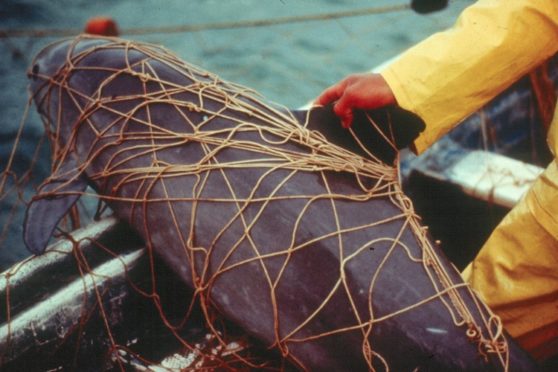Researchers at a Scottish university have warned that one of the most critically endangered animals in the world could be rendered extinct by the end of the year if illegal fishing nets aren’t banned.
The vaquita porpoise, which grows to only around 55 inches in length, was once a common sight in the waters of the northern Gulf of California in Mexico.
Their name means “little cow” in Spanish, and since the Yangtze River Dolphin was declared functionally extinct in 2006, it has gained the unenviable title of world’s most endangered cetacean.
Due to overfishing and other factors, the species’ population was reduced to around 600 by 1997, below 100 in 2014, and scientists now believe there are fewer than 10 living individuals left in the wild – and none in captivity.
The huge drop in remaining vaquitas has occurred despite a ban by the Mexican Government on gillnets, which can sometimes kill the porpoises.
The diminutive marine mammals, which must frequently surface to breathe from their blowholes like their dolphin and whale cousins, can easy get caught alongside other species in the illegal nets.
All of the 10 vaquita which have been found dead since 2016 drowned in such nets.
Professor Len Thomas, director of the Centre for Research into Ecological and Environmental Modelling at St Andrews University, was invited to participate on an international panel of expert ecological statisticians to analyse the data.
He said: “The ongoing presence of illegal gillnets, despite the emergency ban, continues to drive the vaquita towards extinction.
“Immediate management action is required if the species is to be saved.”
Researchers keeping track of the world’s only remaining vaquitas can study them by recording the clicks they use for echolocation, which allow them to find food and navigate the small pocket of water where they live in the Gulf of California.
The scientists are able to measure their licks with a large grid of acoustic sensors, which are spread out across the last remaining habitat of the threatened species.
Efforts to breed the animals in captivity have so far proved unsuccessful, due to porpoises’ difficulty in living in unnatural environments.
In late 2017, a female was captured and brought into an enclosure, but it died several hours later due to stress.
